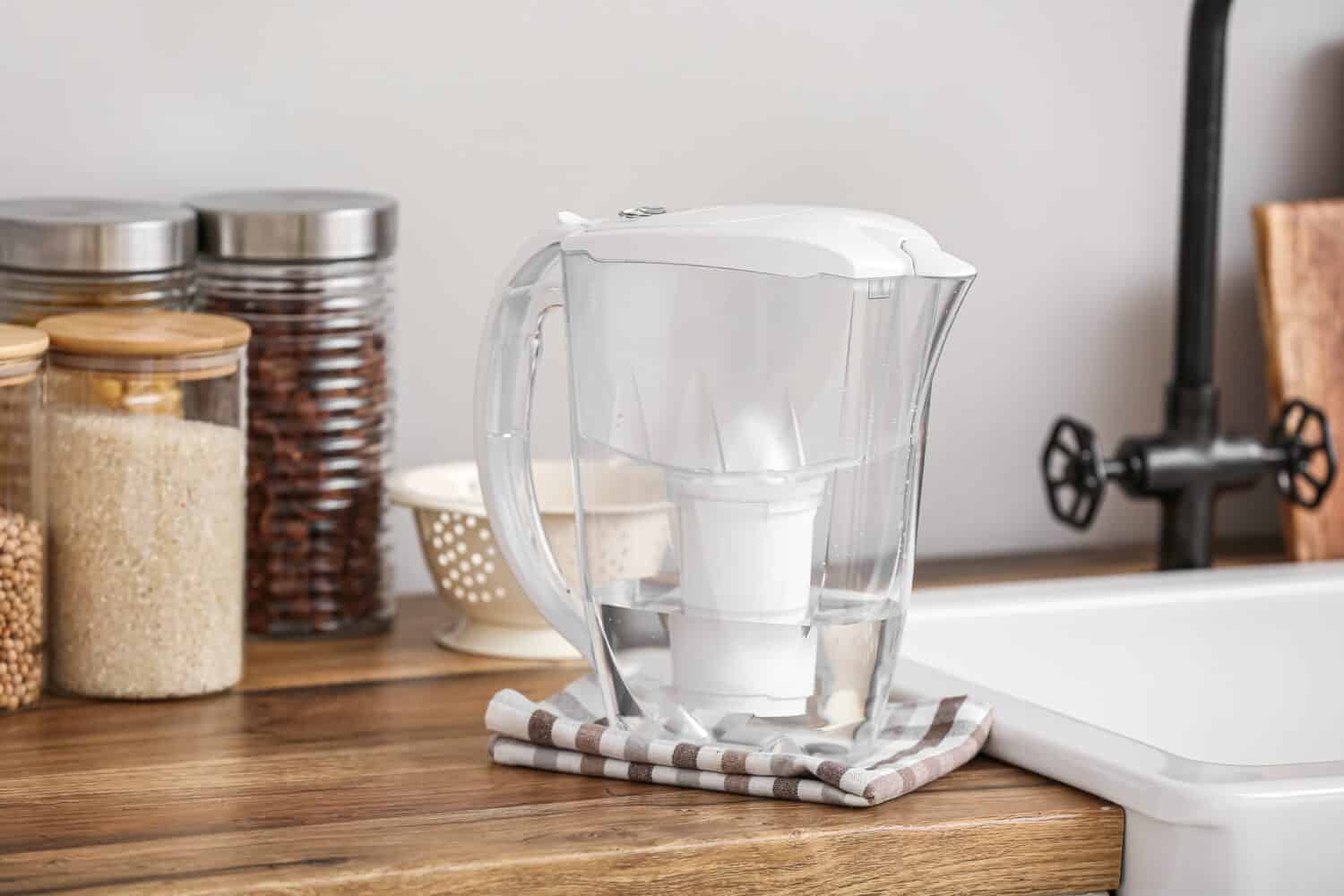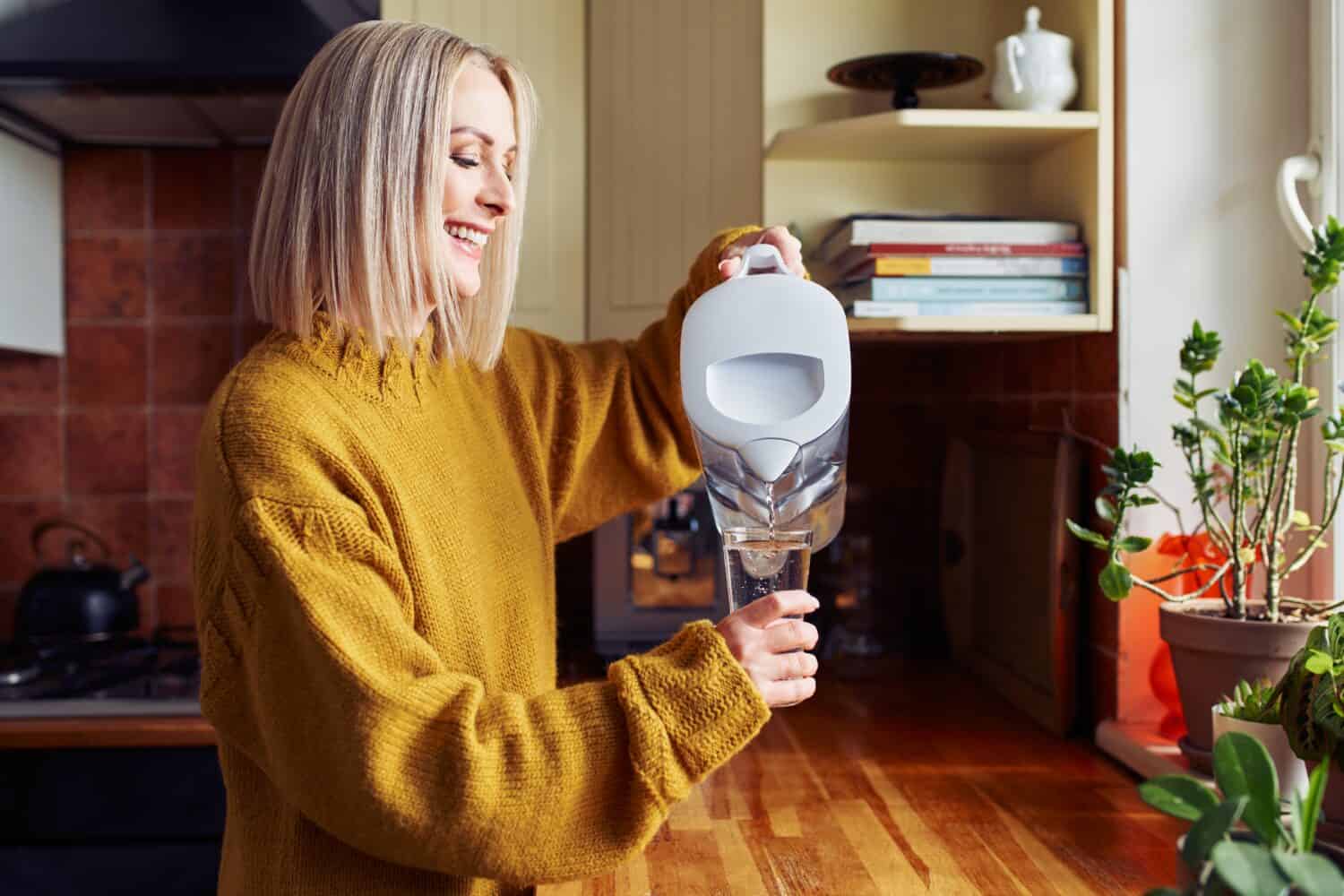Pur and Brita are two popular brands that manufacture water filters designed to improve the taste and quality of tap water. Both companies offer a variety of products, including pitchers and faucet-mounted filters, among others. How do you know which brand is the best choice for your family?
When considering the purchase of a water filtration pitcher, there are many things to consider, including the pitcher's long-term performance and its filtration technology. Additionally, you may want to consider the filter replacement costs and the product's warranty. Moreover, both companies offer a variety of filtration products and filters with a dizzying array of prices and features
While the two brands share similarities, there are some notable differences between Pur and Brita water filters. We will compare these two brands and examine what each one offers in terms of filtration, cost, and overall design.
Pur: An Overview
Pur water filters were initially created by Proctor and Gamble (P&G) as part of the Children's Safe Water Program, a non-profit wing of Proctor and Gamble that provides safe drinking water all over the world. After an American company called Helen of Troy bought Pur in 2012, Pur began selling Basic Pur Genuine and Pur Plus water filtration pitchers to consumers worldwide.
Today, they sell water filter pitchers, dispensers, and faucet-mounted filtration systems. Additionally, Pur manufactures large filtration systems that can be installed in offices and homes. Some of Pur's products include technology that monitors how effective the filter is at reducing contaminants. Pur products also include filter change reminders, which is always helpful in a busy household.
Brita: An Overview
In the 1960s, Heinz Hankamer, a German entrepreneur, developed the first water filter for household use after he noticed how the quality of tap water varied during his travels. He created a simple water filter that improves the taste and purifies tap water. Brita began selling their water filters in the 1970s and quickly rose to prominence.
Brita specializes in water filtration systems for home use, particularly water filter pitchers and dispensers. Brita also makes filters to be used in their pitchers that will last as long as six months. Additionally, they produce filters that can be attached to faucets, allowing users to switch back and forth between filtered and unfiltered water. Finally, they offer water bottles with built-in filters, perfect for taking to the gym or running errands.

©Anja Ivanovic/Shutterstock.com
Pur Filters
Pur provides two types of water filter pitchers: a standard version and an enhanced version featuring LED indicators. Both the basic and enhanced filters employ a combination of granular activated carbon and ion exchange media, certified by NSF (National Sanitation Foundation), to effectively eliminate chlorine, microplastics, mercury, BPA, and more.
Pur uses a special filter made from coconut shells that has smaller pores than regular activated carbon. This special filter helps gradually get rid of impurities when filtering water. The filter lets smaller water particles go through, making the filtering process more effective. Pur also provides a Standard replacement filter and an advanced PLUS filter to remove an even wider range of contaminants.
Pur filters reduce chlorine and eliminate nearly one hundred percent of microplastics and mercury. Additionally, their filters reduce other pesticides by approximately ninety-two percent. However, as of 2023, Pur filters no longer undergo testing or certification for lead reduction.
Brita Filters
The white Standard Filters for Brita pitchers use a multi-step process to filter water. First, the water passes through a built-in mesh screen to prevent black specks; then, activated carbon granules reduce mercury and chlorine taste and odor. Additionally, Ion Exchange Resin captures copper, zinc, and cadmium from the tap water. Brita's long-lasting filters also strip lead, asbestos, and calcium. Finally, their stream filters improve tastes and reduce other impurities in the water. The Elite and Standard filters are Brita's most popular water filtration pitchers
Pur vs. Brita: Models and Cost
Pur has six water pitchers on the market, including their most popular models, the seven-cup or eleven-cup pitchers. The eighteen-cup water pitcher is also very popular. The seven-cup and the eleven-cup pitchers average between twenty-five to fifty dollars. Moreover, the eighteen-cup water filtration pitcher averages around thirty dollars.
Brita has more options to choose from with approximately fifteen pitchers on the market. The 10-cup Grand is the most popular Brita water filter option, priced at approximately thirty-five dollars. Other options include the 10-cup Lake and the 10-cup Rapid Stream Pitcher, which range between thirty and forty-five dollars. Additionally, their popular eighteen-cup Ultramax dispenser sells for around forty-five dollars.

©Pixel-Shot/Shutterstock.com
Pur vs. Brita: How Do They Compare?
Your cost will vary depending on what kind of pitcher and filter you choose to install. Here is a quick breakdown to give you an idea of the cost.
| Pur Plus 30-Cup Dispenser | Brita UltraMax Standard | |
|---|---|---|
| Water Capacity | 30 cups | 27 cups |
| Filtration Technology | Pur Plus | Brita Standard |
| Contaminants Removed | Chlorine, copper, cadmium, mercury, microplastics, and benzene | Copper, cadmium, mercury, and zinc |
| Average Filtration Capacity | 40 gallons / 2 months | 40 gallons / 2 months |
| Size | L: 15.3”, W: 5.3”, H: 10.1” | L: 14.37”, W: 5.67”, H: 10.47” |
| Price | $35.99 | $38.99 |
| Replacement Filter Price | $25.99 (two-pack) | $18.99 (three-pack) |
Pur vs. Brita: Which One Is the Best at Removing Contaminants?
The Pur Plus 30-cup dispenser's filter removes an impressive amount of contaminants from tap water. However, it's important to note that it does not remove asbestos or lead. Here are some of the contaminants it eliminates, along with their approximate percentages.
- Benzene – 96.8%
- Cadmium – 98.9%
- Chlorine – 97.5%
- Copper – 95.9%
- Mercury – 96.4%
- Microplastics – 99.8%
If you buy the Brita Ultramax Standard with the Standard filters, it is less effective at removing common water contaminants. It also does not remove lead or chromium.
- Cadmium – 93%
- Chlorine – 95%
- Copper 94%
- Mercury – 96%
In this case, the Pur water filtration pitcher would be the better choice because it is both cheaper and eliminates more harmful contaminants.
Pur vs. Brita: Other Factors to Consider
When purchasing a water filtration pitcher, you also have to consider things like warranty, water capacity, and replacement filters. So, while the Pur pitchers have better filtration technology, their filters also tend to be more expensive. However, Pur offers longer warranties on their products, typically a year to two years, while Brita only offers one year.
In customer testing, people rated the Brita filtered water as better tasting than Pur's filtered water. So, if you are looking for better-tasting water, Brita may be the best option. Moreover, consumer testers say that the Brita Elite filter will filter 120 gallons of water for up to six months. On the other hand, Pur's filters typically have shorter life spans and only last for approximately thirty gallons of water or two months.
So, which brand is the best ultimately depends on what you are looking for in a water pitcher. If you are looking for better taste and longer life spans, Brita may be the best choice. However, if you want to remove more contaminants from your water, Pur comes out ahead. Additionally, they offer better product warranties.

©PeopleImages.com – Yuri A/Shutterstock.com
In Conclusion
There are many factors to consider when choosing between Pur vs. Brita. Ultimately, which brand is the best fit for your family will depend on what you are looking for in a water filtration pitcher. To figure out which brand is the best for your family, consider the capacity, the filter performance, and the quality of the filtration technology. Additionally, consider different models and the cost of replacement filters. Understanding each brand's features and limitations will help you make the most informed decision based on your family's needs and budget.
The image featured at the top of this post is ©baranq/Shutterstock.com.
